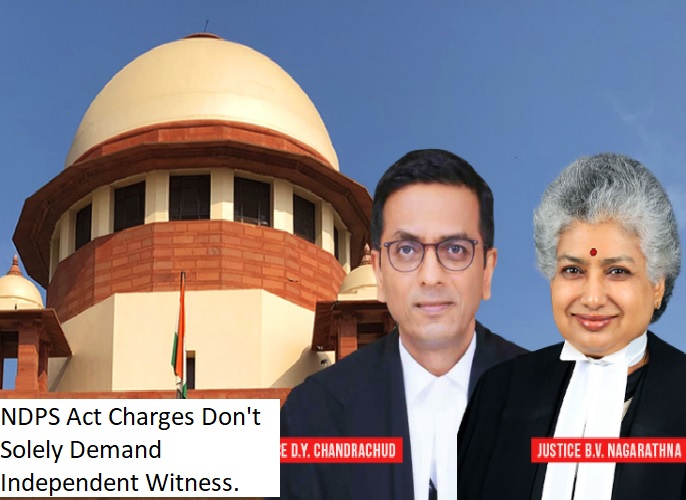


The recent pronouncement by the Supreme Court underscores a pivotal legal interpretation regarding the Narcotic Drugs and Psychotropic Substances Act, 1985 (NDPS Act). Justices M M Sundresh and Aravind Kumar formed the bench that delivered this significant judgment. The case in question involved an appellant convicted under Section 15 of the NDPS Act for the possession of 54 kgs of poppy husk.
The appellant contested the conviction on the grounds that only police witnesses were presented during the trial, and lacking an independent witness, the conviction should not stand. Additionally, the appellant asserted that he was merely a passenger in the vehicle and was not consciously in possession of the contraband. The appellant argued that the required procedures under the NDPS Act, particularly concerning seizure and recovery, were not adhered to. The absence of completion of the CFCL form at the place of recovery was also raised as a point of contention.
The State countered these arguments, asserting that the trial court had duly considered all submissions before convicting the appellant. Furthermore, it highlighted that the trial court had imposed the minimum sentence of 10 years of rigorous imprisonment.
The Supreme Court, after careful consideration, rejected the appellant's contentions and upheld the decision of the High Court. The court emphasized that the law governing the NDPS Act does not mandate the exclusive reliance on an independent witness to establish charges. It agreed with the lower courts' findings that procedural requirements related to arrest, seizure, and recovery were satisfied. The court specifically noted the competence of PW-3 in gathering evidence and highlighted the presence of PW-7, a gazetted officer, during the recovery from the car.
The court addressed the appellant's argument about the non-completion of the CFCL form at the site of the arrest and recovery. It concurred with the lower courts' stance that this procedural lapse did not invalidate the case, reasoning that it falls within the realm of procedural law.
In summary, the Supreme Court's ruling reinforces the principle that an independent witness is not the exclusive requirement for proving charges under the NDPS Act. The decision emphasizes the importance of procedural compliance and acknowledges the competence of designated officers in gathering evidence. The court's refusal to interfere with the High Court's order signals a commitment to upholding established legal interpretations in cases involving the NDPS Act.
TAGS: Supreme Court NDPS Act Justice M M Sundresh Justice Aravind Kumar Section 15 Poppy husk Appellant